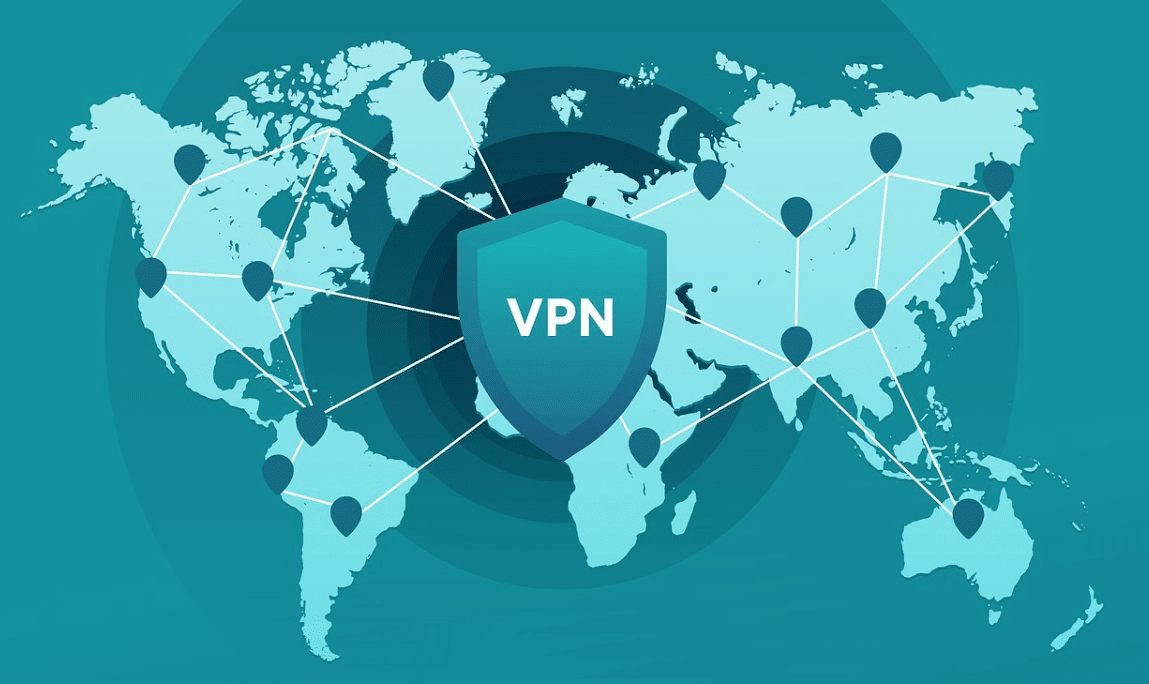VPN or Virtual Private Network began as a help to encourage secure access to private systems over the web (public connection). At that point, the essential use-case situation for the service was to make a secure channel to get to data inside governments, associations, and organizations, without dispensing a danger to their information. Over the years, as products and services utilizing the individual data of users began becoming the dominant focal point on the web, the requirement for secure and private access provoked the interest for something as refined and secure as VPN to come into the standard for individual use.
Indeed, even today, as for individual use, keeps on developing among the majority, and the service seems, by all accounts, to be one of the promising and secure answers for getting to data while preserving user identity. It is not the most secure means and is imperfect and inadequacies, which infers that even VPNs aren’t great, all things considered.
To comprehend this story, it is basic to understand the working of a Virtual Private Network and its underlying complexities that may prompt potential vulnerabilities and hold the extent of identity spill. In this way, how about we start by first addressing the most evident questions and gradually dig into the concerns that follow.
What is VPN and how does it serve the purpose?
A VPN (or Virtual Private Network) is one of the modern-day solutions including different conventions that permit users to get to data over the web in a protected and anonymous way.
You can generalise VPN as a glorified proxy. As most of the time, the fundamental idea behind both a VPN and a proxy are the equivalent, to go about and act as a middleman between your gadget and server. In a way that permits you to mask the source of the request and look after anonymity.
In any case, while the two offer a comparable working guideline, it is important that, in contrast to proxy servers, VPNs accompany extra highlights and safety efforts — that is, when granted, the VPN provider complies with the cases and security it proposes to practice.
Contrasted with the initial days of its commencement, the cutting-edge VPN service expands the extent of utilization significantly further. From offering an encoded channel to get public WiFi to giving secure access to a private system to something as fundamental as bypassing geographic limitations to see geo-blocked content across OTT stages among others. In any case, despite the scope of utilizations it offers to aid various situations, it is how it plays out these activities, which brings up a few issues.
How does a VPN work?
Moving right along, before diving straight into the worries related to a VPN, we should take a brief overview of its working guideline to more readily comprehend the potential for some of the fundamental vulnerabilities. VPNs are glorified proxies, to a more noteworthy degree, they offer similar fundamental usefulness. As referenced two or three sections prior, you can consider VPNs celebrated intermediaries. Since, to a more noteworthy degree, they offer similar fundamental usefulness.
So, when you utilize a VPN, generally, you are utilizing a proxy to make demands on your behalf to the destination server. By doing so, you are disposing of the need to build up the association yourself, which, in a way, helps you stay anonymous on the web. To get this, consider a model where you attempt to visit a geo-confined site in your locale. While you do that, the server can distinguish the source of request utilizing the IP address given by your ISP. This, in turn, can prevent you from setting up an association and getting its services.
However, when you get a VPN into the scenario, the overall situation changes. When you use a VPN client to request access to any restricted web content online, the server notices the request is originating from the same geo-location it is being hosted and thus permits you access to its services.
Also, since the channel between your gadget and the ISP is encrypted, it keeps your ISP from distinguishing the request and the reaction on either end of the association. Subsequently, you, in the long run, figure out how to bypass the limitation despite being situated in some other part of the world.
Thus, when you utilize a VPN with the idea to browse the web safely and anonymously, the service makes an encrypted passage between your gadget and the ISP and utilizations burrowing to keep your ISP from review your online movement. Besides, it additionally covers your IP (Internet Protocol) address with some irregular location, which guarantees you remain unknown while riding the web. In any case, saying this doesn’t imply that an IP address is untraceable, as there are sure escape clauses with VPNs that can be misused to recuperate such data.
Why is the VPN not so perfect?
At the point when you utilize a VPN client on your device, even though the association is encoded and your IP is masked, you can, in any case, be tracked utilizing different parameters. An IP address is a little bit of identifiable data in your web profile. And then there are other kinds of intimations for your web identity that can support an attacker or advertiser create your web profile. Also, at times, the VPN service provider could itself be helpless to assaults. As a result, it may get traded off and leave you open to all your data winding up on the web.
Obscure Privacy Policy
While most VPN providers do recommend that they adhere to solid encryption gauges to make sure about your information on the web and that they don’t follow your online movement to guarantee your privacy is never undermined, it appears to be questionable with a greater part of the service providers, particularly the ones that offer their services for free.
This is a major concern. As what most of these services notice in their privacy policy isn’t something they carefully comply with. And often, there is either some unclear component in the policy or a missing statement, that is outlandish for a normal user to discover momentarily at the time of sign up.
Besides, a great deal of the highlights and safety efforts these services recommend offering is loaded up with a huge number of tech-language— to a degree where it is very overpowering for a normal user, and gives them a misguided feeling of expectation about the services’ privacy measures, to instantly get them onboard.
Concealing your IP is an absolute necessity
In a similar vein, countless VPN providers likewise appear to make a condition of urgency or panic among users, proposing that an IP address holds the key to a lot of their data. Furthermore, accordingly, one must pursue their VPN service to alleviate this worry, and thus, improve their security. Even though, everywhere, this isn’t wrong, as an IP address holds the way into a portion of the significant profiling components of a user on the web.
In any case, that doesn’t, nonetheless, propose that an IP address is the absolute most element that holds the way to progressively close to personal data about a user, as there are different factors as well, which can assist somebody with following a client on the web. In this manner, recommending that the claims from these VPN providers are only exclusively marketing affirmations.
Logging and selling user data
Taking it further, the other significant concerns with VPNs that wait on a superficial level, however, for the most part, get unnoticed, are logging and selling of user data. If you utilize a free VPN client, your online activity is probably going to be logged by the service and put away on its servers.
The recorded logs by and large incorporate data, for example, your IP address, the sites you visit, timestamps for connection/disconnection, data transfer during sessions, and that’s only the tip of the iceberg. Nonetheless, there aren’t numerous services that put it inside and out that they don’t log any client data. Rather, what these services rather do is utilize ambiguous messages in their policies to make things as far as possible even more confounding for clients to understand and settle on an educated choice.
Even though there are a couple of exemptions — in all probability the paid services — that do face their case of no-logging of user data. In any case, unfortunately, they also avoid unequivocally referencing “no logging” in their privacy policy. To add to that, before, a portion of the well-known services have been liable of logging user information without them knowing.
Promoting DNS release avoidance as an element
Other than no-logging claims, VPN service providers additionally guarantee to forestall DNS-spillage, which is a term used to refer to a circumstance where the service neglects to tunnel your DNS demands, and rather, it winds up with your ISP. To give you a quick primer, a DNS or Domain Name System is a decentralized server that is answerable for holding records of domain names and their related IP addresses.
In this way, for instance, when you enter Facebook [dot] com, the DNS becomes possibly the most important factor to determine the area name with its assigned IP address to give you the outcome for your query. Returning to DNS leak, what this implies is that, in a perfect situation, when you demand a site over a VPN, it ought to get settled immediately, and you should have the page open on your gadget. Nonetheless, in specific cases, the VPN neglects to stay quiet about this and winds up releasing the DNS entry for your mentioned site with your ISP.
Also, although a few services propose offering its feature, the thought appears to be somewhat trivial in any case, since guaranteeing DNS spills don’t occur while you utilize a VPN, ought to be a simple functionality, and not something that the service providers need to advertise as a feature.
Traffic encryption guarantees
Last, yet surely not the least, is the worry over encryption, which appears to make a great deal of disarray among users. While most specialist organizations guarantee that utilizing a VPN encodes your information with solid encryption guidelines before it winds up on the open system, the wit here is something that makes the user succumb to their guarantees and buy into the service immediately.
As, although the data is encrypted by the service, it is how much it is encoded that plays a vital job. What this implies is that the piece of the communication that is encrypted decides the degree of privacy and data security one can expect out of the service. The VPN provider encrypts the piece of the protection and information security one can expect out of the service.
The VPN service provider encrypts the part of the correspondence that includes the association between your ISP and gadget, leaving the transmission of information from the ISP to the destination server decoded. In this way, while the information moves through the safe passage between your gadget and the ISP, you can be guaranteed that it is secure from the intrusive eyes.
All these reasons leave the end-user in a very unclear situation, wherein most cases, despite buying a premium service, the users are still not convinced whether the service guarantees complete security and anonymity and does not put any information at risk. Moreover, the policies defined by the services do not clearly describe how they handle user’s data and the level of measure they take to deal with targeted advertising.
VPN should be used or not?
In the wake of talking about different components that can have an impact in leaking your data and render your VPN service useless, there are sure use-case situations in which the service can end up being useful. In any case, it merits referencing that, you should do exhaustive research on the shortlisted choices and contrast them and different services on your rundown. Furthermore, you MUST READ THEIR PRIVACY POLICY CAREFULLY before making a choice and spending your money on a membership.
Also, you should carefully abstain from succumbing to “free” VPN services, as practically these services offer your data to advertisers in return of monetary gains to create income for the working of their services and could likewise be observing users traffic for remote knowledge. This is a genuinely ignored angle by the vast majority who are simply beginning with a VPN, and periodically, they succumb to such free services.
However, there are a couple of services that offer a free trial for users to look at the service for themselves before spending their money on its membership, which proceeds to propose that, you can confide in such services, conceded you check their privacy policy altogether.
Although all through the article, we emphasized on how VPNs have their disservices and downsides, and that, they aren’t immaculate in any sense and ought not to be trusted aimlessly, we are not the slightest bit recommending you surrender altogether. But instead, requesting that you limit its use to critical circumstances as it were. For example, you can utilize a VPN to access resources on an organization’s private system, sidestep geo-limited content, go around ISP-level substance blocking, or even to get to open systems in lodgings or bistros in urgent circumstances.
Furthermore, if you are available to consider some different options to VPN, there are other working answers for various use-case situations to assist you with easing the requirement for a VPN in any case. A portion of these choices incorporate Smart DNS — to camouflage your area to get to geo-restricted sites; Tor (The Onion Router) — to expand your security and namelessness and to sidestep limitations; versatile applications, for example, Orbot and Orfox — that encourages you to divert the traffic on your gadget through Tor; among different solutions.






Leave a Reply